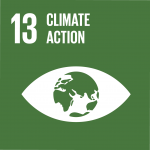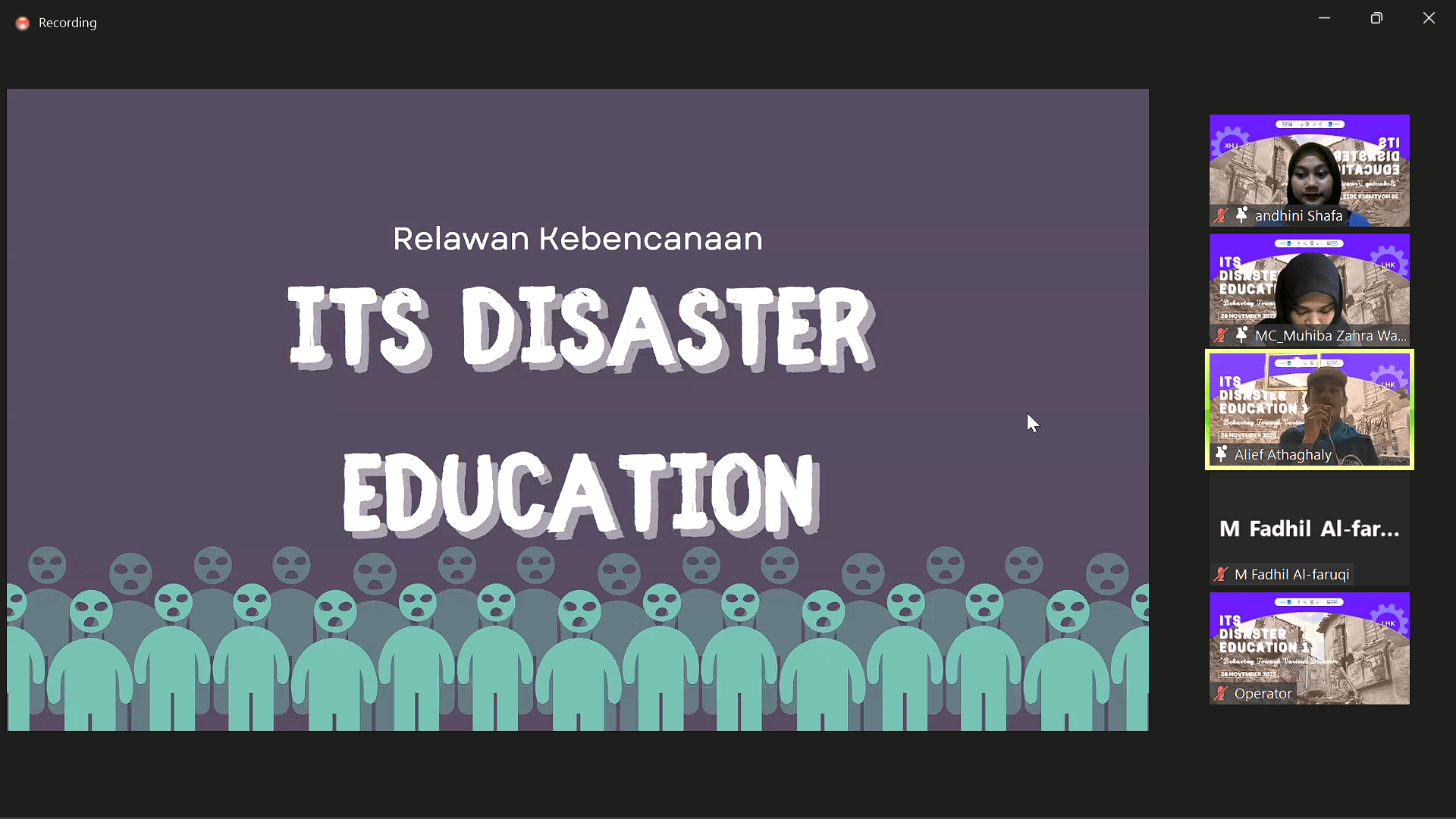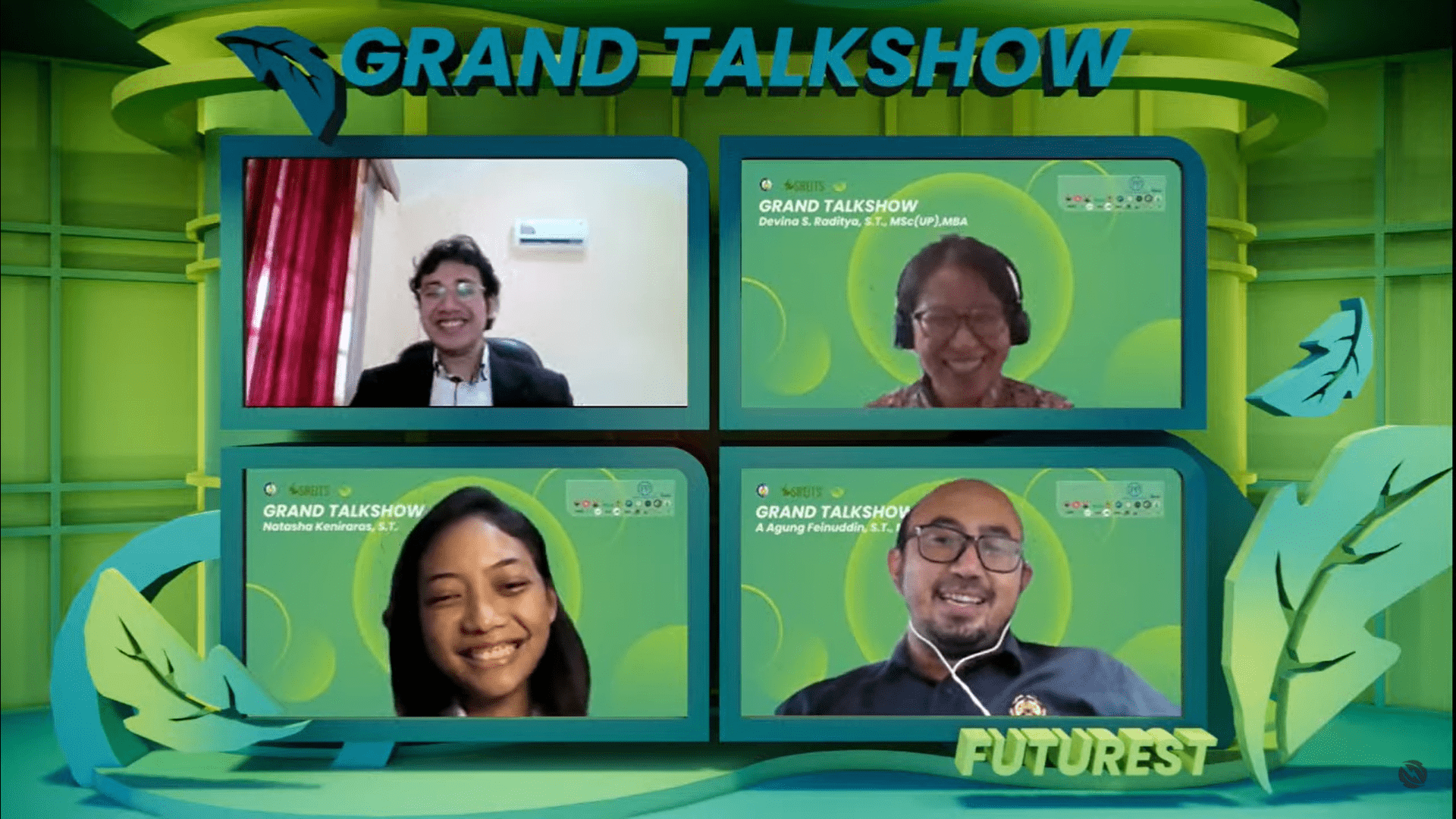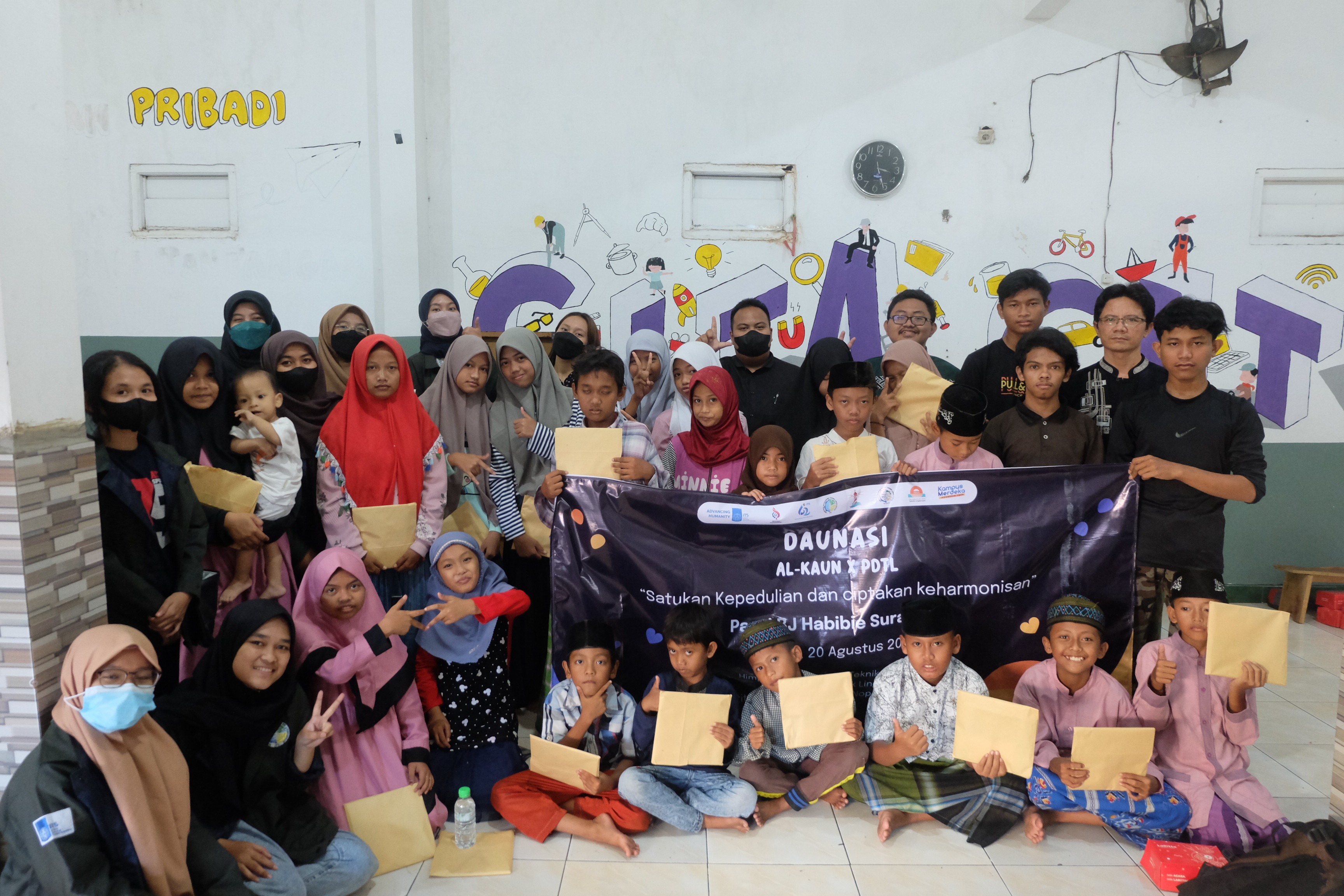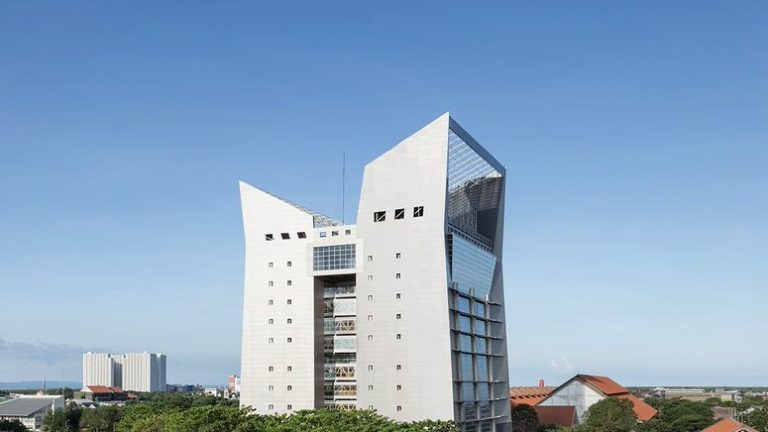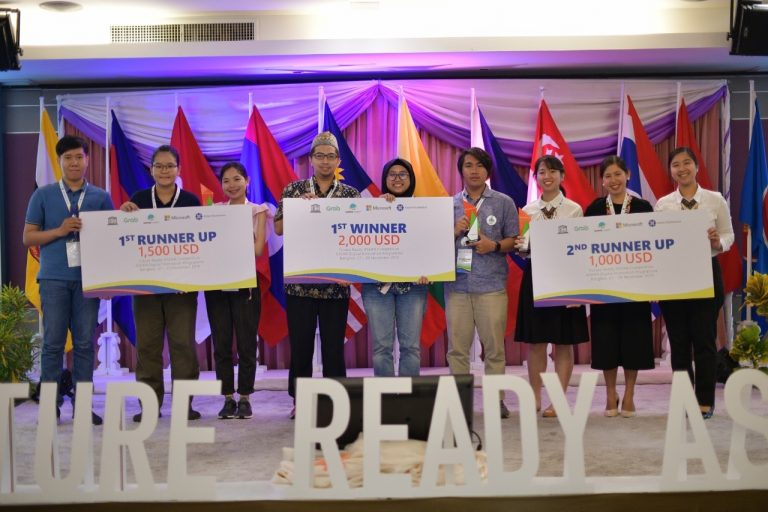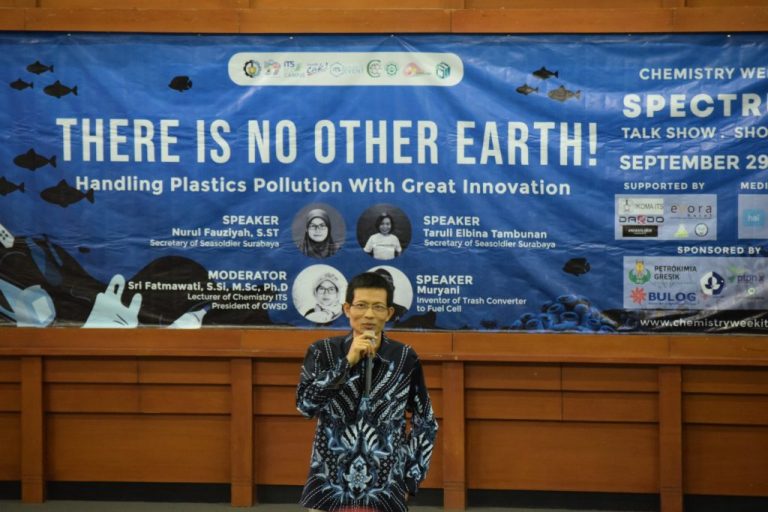“Climate change is a crisis that will affect every part of society, and every country. Universities need to be at the forefront of action to reduce the impact of climate change, especially amongst the poorest who will be the most affected.”
(THE Impact Rankings)
SDG 13: CLIMATE ACTION
Low-Carbon Energy Use
Renewable Energy Sources
In accordance to ITS Rector’s Circular Letter No. 95007 Year 2019 on ITS’ Initiatives towards Sustainable and Environmentally Friendly, ITS enforces it by promoting the use of technology to carry out energy efficiency. In addition, it also encourages the act of implementing energy conservation through the utilization of new and renewable energy within ITS campus. ITS has 3 (three) renewable energy sources used on campus with a total energy produced per year of 216605 kWh/year, consisting of solar power, clean biomass, and biodiesel.
Autonomous iCar Tracking
ITS promotes low-carbon transportation by providing an electric-powered transportation mode on campus. The Intelligent Car (iCar) is a smart car that does not require steering (it is autonomous). iCar offers six paths. Stop 1 is ITS Dormitory, Stop 2 is Manarul Ilmi Mosque, Stop 3 is ITS gate exit, Stop 4 is Department of Environmental Engineering, Stop 5 is Rectorate Building, and Stop 6 is ITS Central Canteen. Furthermore, iCar has developed a website where passengers may track the whereabouts of the iCar in real time.
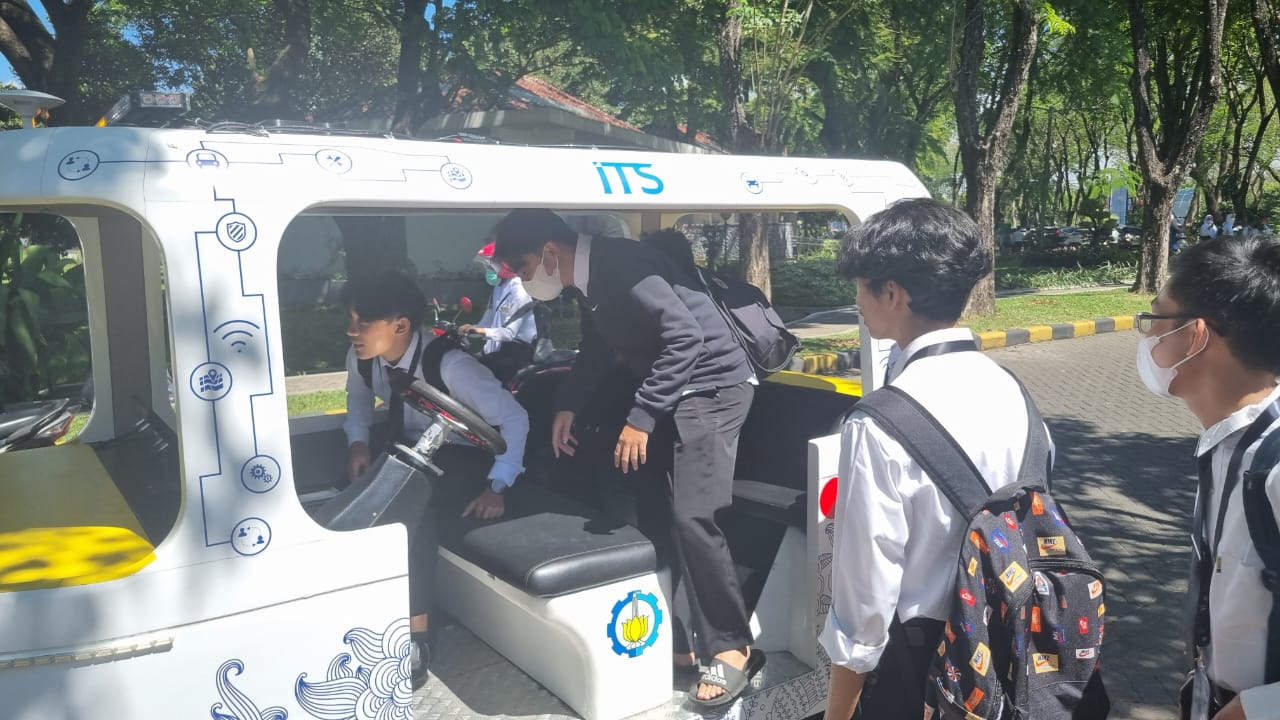
Environmental Education Measures
ITS Environmental Activist on Comprehensive Disaster Management in Indonesia
In light of Indonesia’s vulnerability to various natural disasters, proactive disaster management is imperative to minimize their impact. In 2022 alone, Indonesia experienced a staggering 3052 natural disasters. The Environmental Lovers (PLH) Cycle of the Sepuluh November Institute of Technology (ITS), under the guidance of Alief Athaghaly,
recognizes the importance of disaster management, which comprises pre-disaster, emergency response, and post-disaster phases. The pre-disaster phase is further divided into prevention and mitigation and preparedness. Prevention and mitigation involve strategic efforts to analyze disaster impacts and reduce risks, emphasizing the need for local education programs and campaigns on climate change risks, impacts, mitigation, adaptation, and early warning systems. These initiatives contribute to enhancing disaster awareness and preparedness among the Indonesian population.
ITS Future Energy Summit 2022: Cultivating Climate Change Leaders through ‘The Urgency of Climate Change Mitigation’ Talk Show
The Society Renewable Energy (SRE) of the Sepuluh Nopember Institute of Technology (ITS) has taken a proactive approach to raise environmental awareness among the younger generation by organizing a talk show titled “The Urgency of Climate Change Mitigation.” ITS Rector, Prof. Dr. Ir Mochamad Ashari MEng emphasized that addressing environmental issues is a collective responsibility that extends to universities and students.
This initiative, as part of the Future Energy Summit (Futurest) 2022, aims to equip students as agents of change with the knowledge and motivation to tackle climate change challenges. By providing local education programs and engaging in campaigns on climate change risks, impacts, mitigation, and adaptation, Futurest 2022 endeavors to create a generation of leaders who can innovate solutions to mitigate environmental changes and contribute to global sustainability efforts.
ITS Empowers Youth at an Orphanage with Waste Sorting Awareness Initiative
In an endeavor to instill environmental consciousness from a young age, Institut Teknologi Sepuluh Nopember (ITS), through its Environmental Engineering Department’s spiritual team, has taken the initiative to promote waste sorting awareness among children at the BJ Habibie Orphanage in Surabaya. This reflects ITS’s commitment to fostering a community that cares about the environment.
The event, organized in collaboration with the ITS Environmental Lovers and Observers Group (KPPL), focused on local education programs aimed at engaging children in waste sorting, emphasizing the distinction between organic and inorganic waste. By undertaking such campaigns, ITS contributes to local efforts in building awareness of climate change risks, impacts, mitigation, adaptation, and impact reduction, instilling early knowledge about the environment’s challenges and solutions.
Research Center for Disaster Mitigation and Climate Change (Puslit MKPI)
The Research Center for Disaster Mitigation and Climate Change (Puslit MKPI) is part of the Directorate of Research and Community Services (DRPM) of Sepuluh Nopember Institute of Technology (ITS). Puslit MKPI focuses on providing and generating suggestions for disaster and climate risk reductions based on the findings of various scientific research into disaster and climate change solutions in Indonesia. The Puslit MKPI has a roadmap that focuses on climate change risk reduction until 2024. Puslit MKPI collaborates with local government and the private sector.
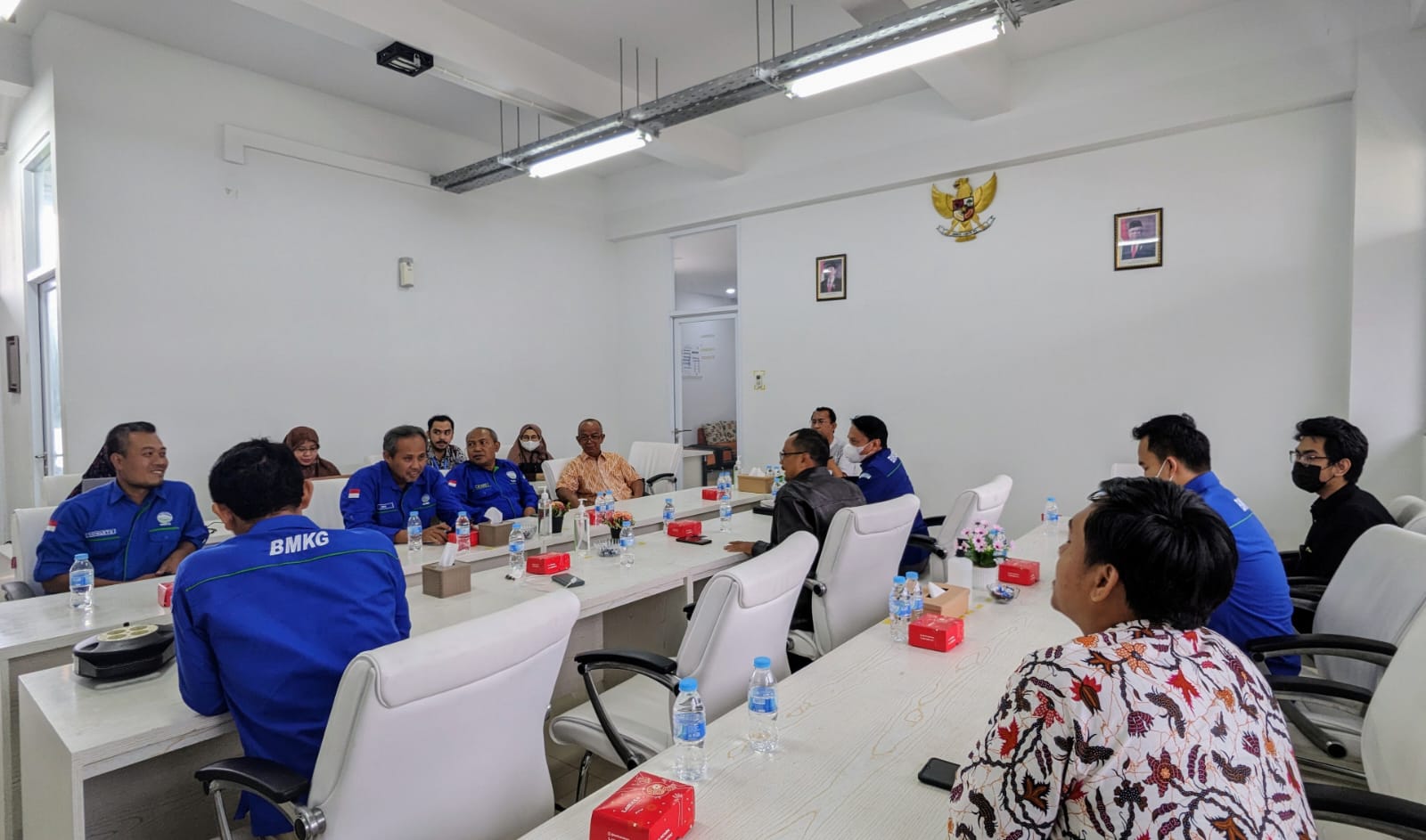
Zero Emission Vehicles (ZEV) for Dealing with Climate Change Issues
Through its Zero Emission Vehicles (ZEV) Policy, ITS provides a climate action plan. ZEV strives to reduce carbon emissions, which are damaging to the environment. Campus bicycles, emission-free electric buses, electric motor emission-free vehicles (Gesits), and zero-emission autos I-Cars are examples of ZEV applications in the ITS campus setting. I-Car is smart car to assist the driver in recognizing dangers, preventing collisions, and lowering the risk of accidents, as well as optimizing the power of the electric motor drive.
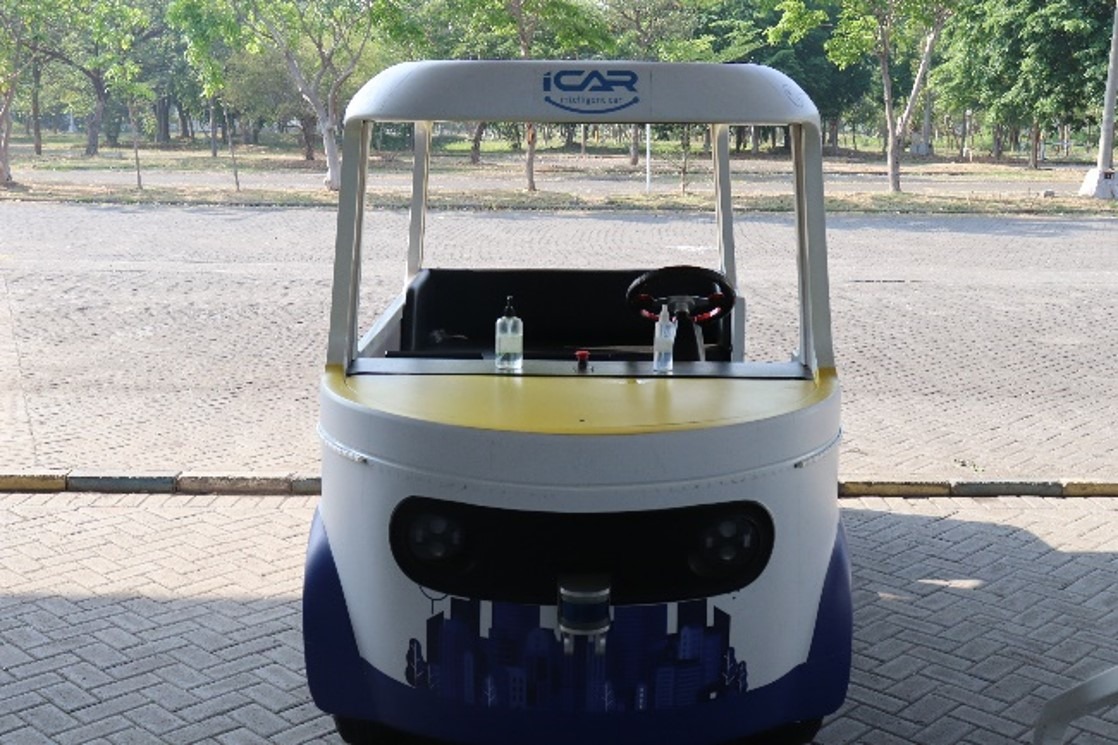
Green Building for Dealing with Climate Change Issues
The construction of buildings at ITS is meant to address the challenges of climate change. Green building is an initiative by ITS to address climate issues at the level of local community groups. Green buildings are intended to reduce carbon emissions, consume less energy, and enhance indoor air quality, resulting in healthier and more environmentally responsible constructions. Green buildings can be found in a variety of locations, including the Manarul Ilmi Mosque, Menara SAINS, Product Design Department, Urban and Regional Planning Department, and so on. The concept of natural lighting to construction of buildings above ground to collect rainwater is applied in the application of green building.
Research Center for Disaster Mitigation and Climate Change (Puslit MKPI)’s Partnership
The Research Center for Disaster Mitigation and Climate Change (Puslit MKPI) is part of Directorate of Research and Community Services (DRPM) ITS. Puslit MKPI focuses on providing and developing recommendations for disaster and climate risk reductions in Indonesia based on the findings of diverse scientific research into disaster and climate change solutions. Puslit MPKI conducts research collaborations and projects with university partners and also local governments. In 2022, Puslit MPKI partnered with numerous local governments, including Sampang Regency, East Java, Bontang City, and Kediri City, on planning for climate change disasters.
BNPB and ITS Establish Disaster Management Cooperation
The National Disaster Management Agency (BNPB) cooperate with ITS to manage disasters in Indonesia. This is a practical embodiment of the Academic Community’s involvement in disaster management and the optimization of synergy and cooperation as the key to increasing coordination and sharpening the implementation of disaster management cooperation. BNPB believes that this collaboration will result in an integrated and long-term program. Starting with comprehensive program planning that is tailored to the demands of the work unit and progressing to the implementation of well-coordinated collaboration with all stakeholders. No less important is the monitoring and evaluation mechanism so that it can be prepared and mutually agreed upon as an instrument used to obtain feedback on program implementation.
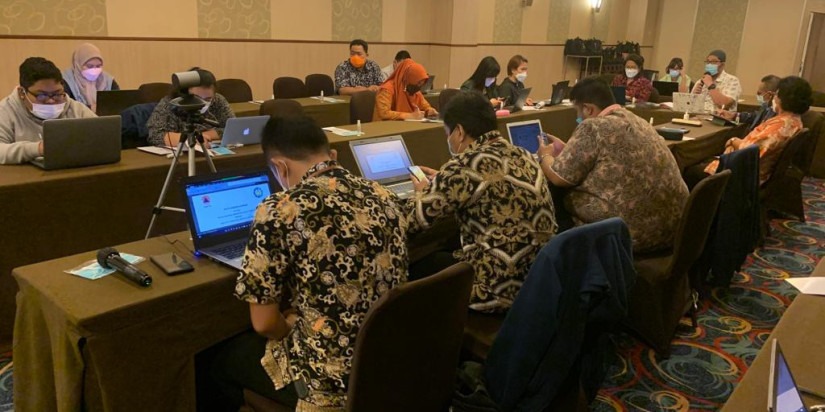
Co-operative Planning for Climate Change Disasters with Disaster Mitigation Projects
ITS aids to cooperative disaster planning for climate change disasters through disaster mitigation projects. In 2022, ITS carried out three disaster mitigation projects. The first program was a volunteer training for natural disaster management in cooperation with the East Java Regional Disaster Management Agency (BPBD) and Search and Rescue (SAR) Surabaya. In the second event, ITS participated in the National Disaster Management Agency’s Preparedness (BNPB) Disaster Risk Reduction Forum (PRB). The most recent event took place at the Semeru refugee community.
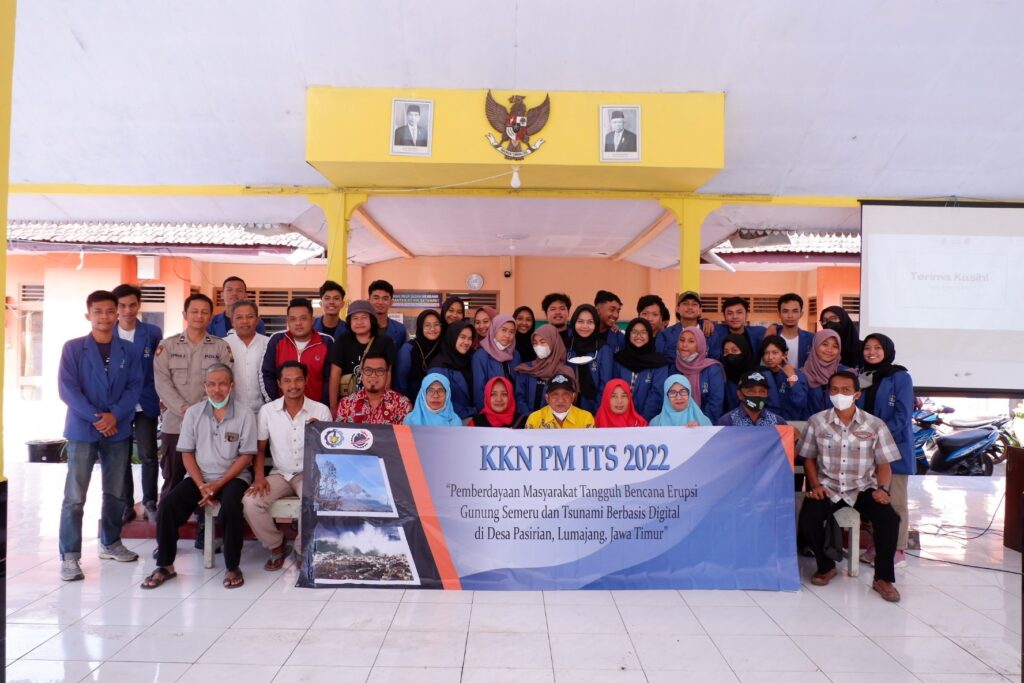
ITS MKPI Strengthens Surabaya Earthquake Preparedness with UK Government Funding
ITS Disaster Mitigation and Climate Change (MKPI) researchers conducted a study on earthquake risk reduction from mitigation to recovery in partnership with Mott MacDonald, with financing from the British Government (UK FCDO). Several activities are carried out in this program to build Surabaya resilience, of course with good cooperation with the Surabaya City Government, SMP/SMA LB-A YPAB, and other parties, such as study of earthquake risk profile in Surabaya, preparation of strategies and mitigation actions for the Surabaya earthquake, preparation of strategies and actions for the Surabaya earthquake response, preparation of strategies and actions to recover the Surabaya earthquake, etc.
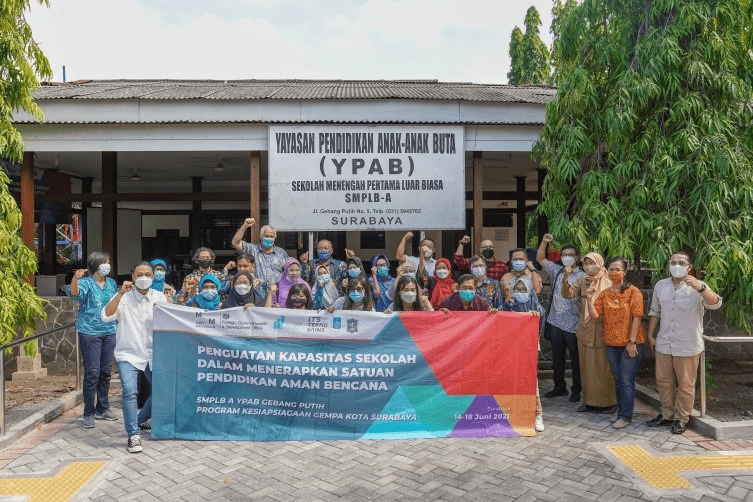
ITS Supports the Government in the Occasion of a Local Climate Change Disaster
ITS supports the government in case of a local climate change disaster through a variety of actions. FGD on the development of the East Java Disaster Management Plan (RPB) Document involving Disaster Management Capacity of National Agency for Disaster Management (BNPB), Regional Agency for Disaster Management (BPBD) of each Regency/City in East Java, Ready Alert, regional or local government agency (OPD), River Basin Development Agency (BBWS), to Disaster Risk Reduction Forum (FPRB) are among the activities carried out in 2022. Then there’s the Pentahelix Coordination Meeting, which held in partnership with the BNPB to increase disaster preparedness. Finally, an ITS Community Service (KKN Abmas) team arrived in Semeru refugee village to support disaster mitigation for all society components.
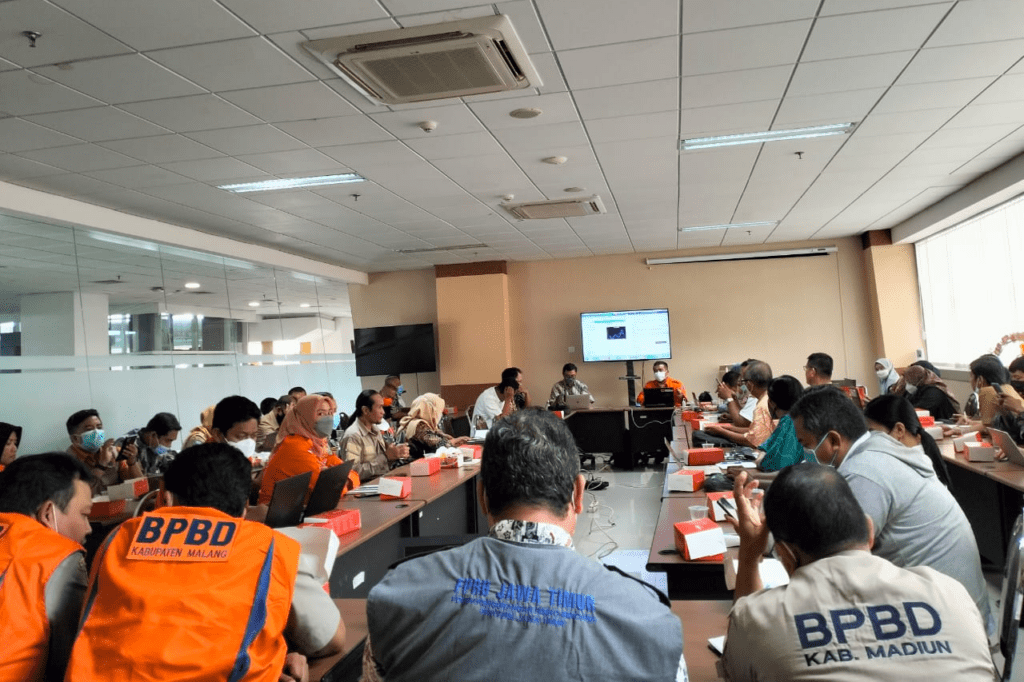
Collaborating with IGES, ITS Enlarges the Contribution to Overcoming Waste in Indonesia
The Institute of Global Environmental Strategies (IGES) and Institut Teknologi Sepuluh Nopember (ITS) collaborated to support several Waste Banks in Indonesia on National Waste Care Day. Due to infrastructure limitations, many waste banks require financial support from ITS and IGES. It is envisaged that this collaboration will help to improve waste bank management in Indonesia and raise public knowledge about trash management.
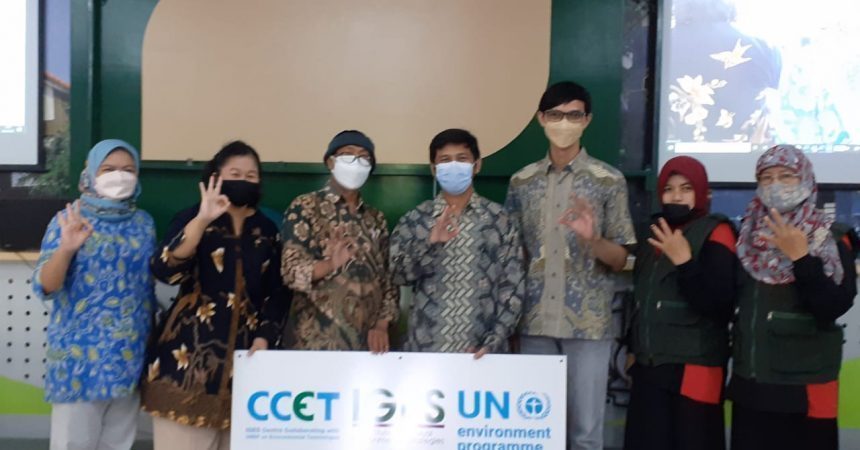
HMTL ITS Collaborates with Nol Sampah Surabaya Community in the Partnership Village Program
Kampung Mitra HMTL ITS (Kammit) is a Department of Environmental Engineering community-based scientific application. HMTL ITS collaborates with Nol Sampah Surabaya, a non-governmental organization (NGO). Through this community service project, HMTL ITS educate the public about greening and biopore manufacturers. Furthermore, the event aims to strengthen the potential of Surabaya communities and create public awareness of the need of environmental protection.
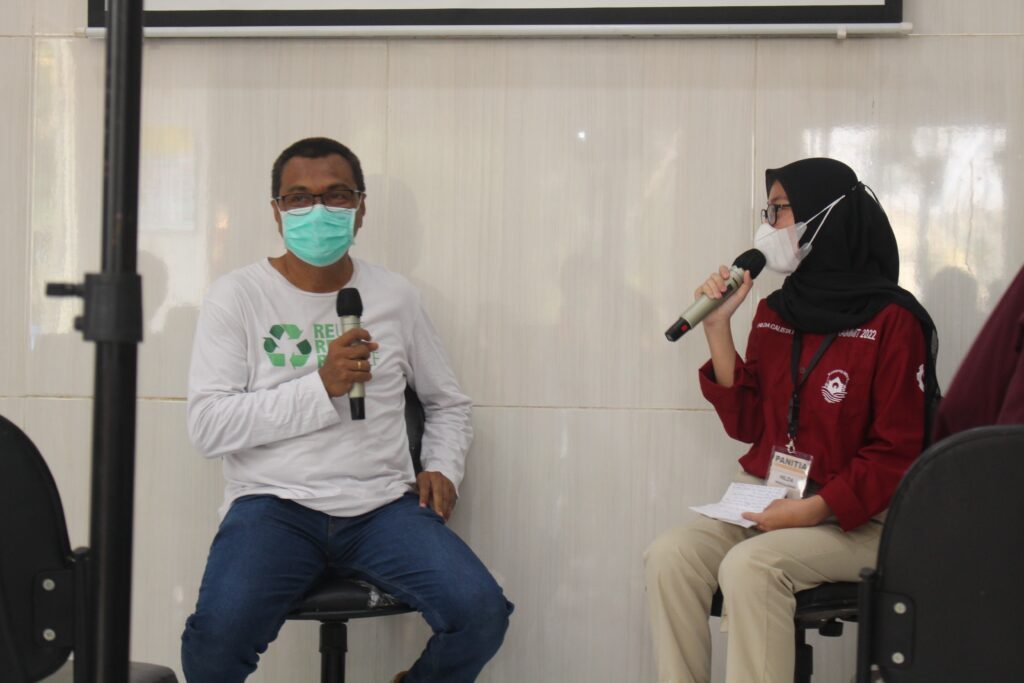
Commitment to Carbon Neutral University
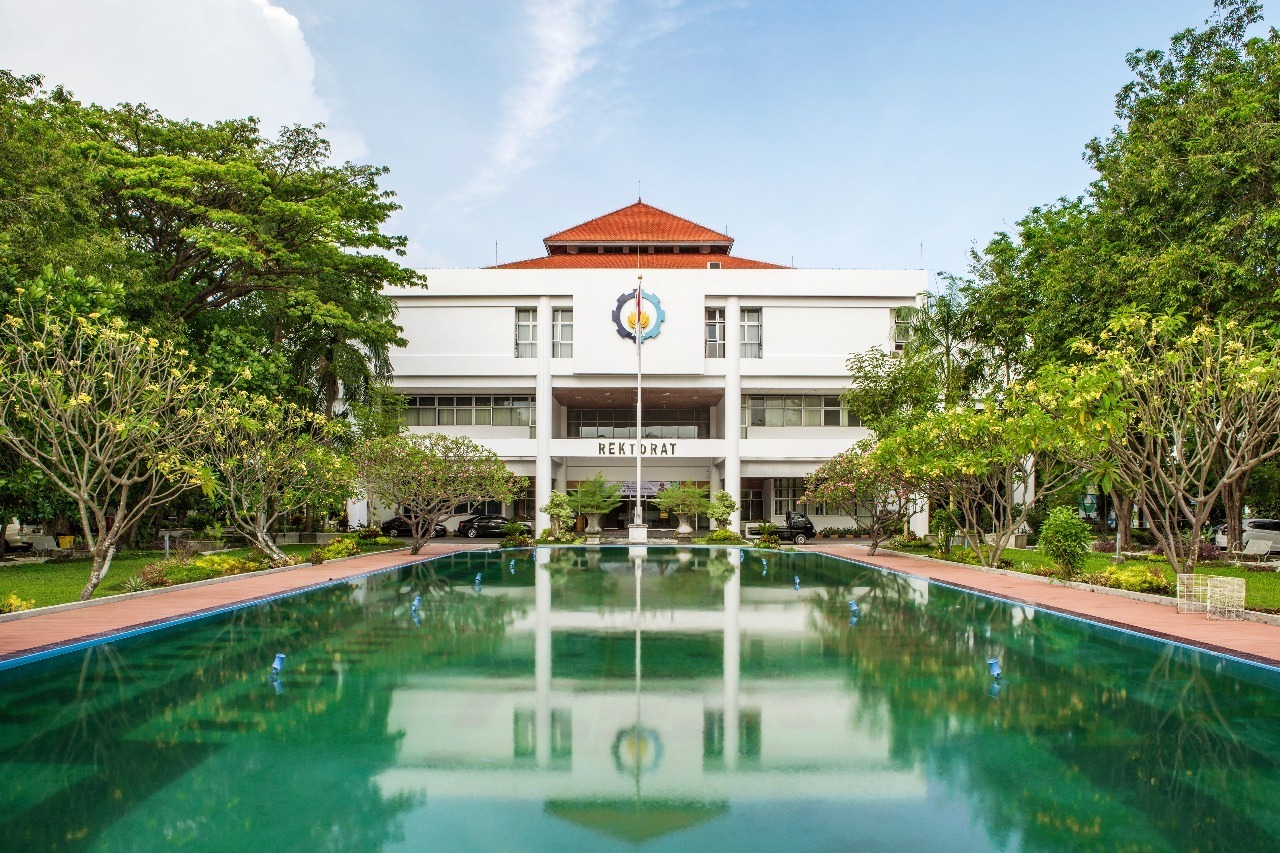
ITS promotes activities and initiatives towards carbon neutral according to the Greenhouse Gas Protocols. These are done in Scope 1, Scope 2, and Scope 3 levels. ITS has made a pledge to implement energy and water saving and the heavy reduce of the subsidized vehicle’s fuel within the work unit environment since 2012. ITS also adopts the concept of green building.
Greenhouse Gas Emissions Reduction
SDG 13 IN NUMBERS
42,513.91 GJ kWh
Total Energy Consumption
779.78 GJ
Total Energy from Low-Carbon Sources
0.018
Proportion of Electricity from Low-Carbon Sources
